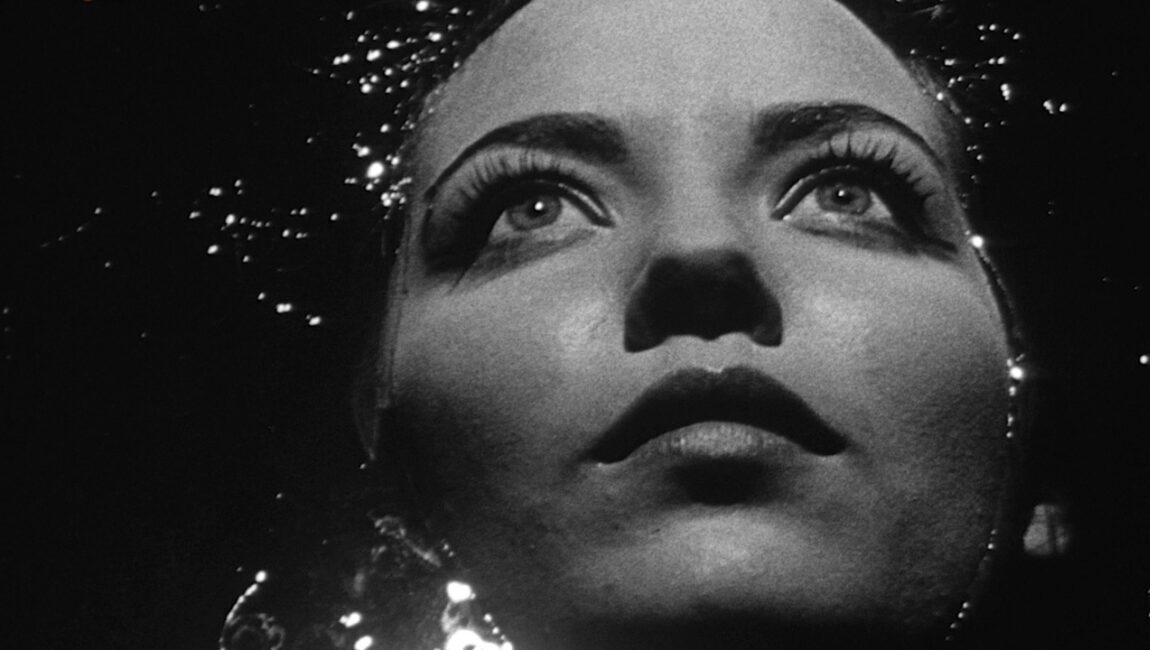Curtis Harrington’s Night Tide screened in 1963 as the second half of an Edgar Allan Poe inspired double bill alongside Roger Corman’s The Raven. It is almost unfathomable that a film as guileless and pure and innocent (but not naive) as this could ever be made today. Harrington’s landlady warned him that starting production on the film when Mercury was rising would only spell trouble, but he forged ahead and created a work of gray shadows, twinkling lights of the rides of the pier, rushing tides, sad merry-go-round horses and circling seagulls. A deeply oneiric and mesmeric text. It stars Dennis Hopper in his first leading role as a young sailor with an open face and longing gaze. His Johnny is the emblem of soap-scrubbed mid-Western Americana. But he’s not without a bit of restless angst at the edges of his mouth and eyes and the very gut-punch center of his frame. His walk is just a little heavier than the happy-go-lucky girl-hungry sailors on leave of Gene Kelly and Fred Sinatra. No, Hopper has learned at the feet of James Dean and his long, long shadow of teenage dissatisfaction and subterranean, inchoate pain. He chases a girl, but this girl is not of an MGM musical, but a Val Lewton horror film. Sharing more than just a superficial similarity with Cat People, Night Tide is a continuation on, and an embellishment of, that film’s ideas about sex (and women and fear) in America.
But Night Tide’s coda extracts the responsibility of possible destruction from the woman and squarely asks a man to shoulder the burden of sexual desire as annihilative disease.
The exotic Mora (Linda Lawson) plays the part of a mermaid in a sideshow attraction at the amusement park on the Santa Monica alongside Sam (Gavin Muir), her pseudo-father who rescued her from orphanhood and starvation as a child on her native Greek islands, bringing this foreign beauty to American shores. Johnny falls in love with her, but just like Simone Simon’s Irena, instead of slinky cat people Mora believes she’s cursed by having Sirens (sexual predators of the watery deep) for ancestors. She fears for Johnny’s safety, telling him that she’s already had two previous beaus mysteriously meet their watery graves. The fear of ones own sexuality and what it could do to another person is at the heart of both Night Tide and Cat People. And the fear and possibility of sexual destruction are located in the body of the “other” — woman and foreigner. Both films end with an excision of the “other” and the relocation of romance into the bodies of an American boy and girl. But Night Tide’s coda extracts the responsibility of possible destruction from the woman and squarely asks a man to shoulder the burden of sexual desire as annihilative disease.
Part of Kicking the Canon – The Film Canon.







